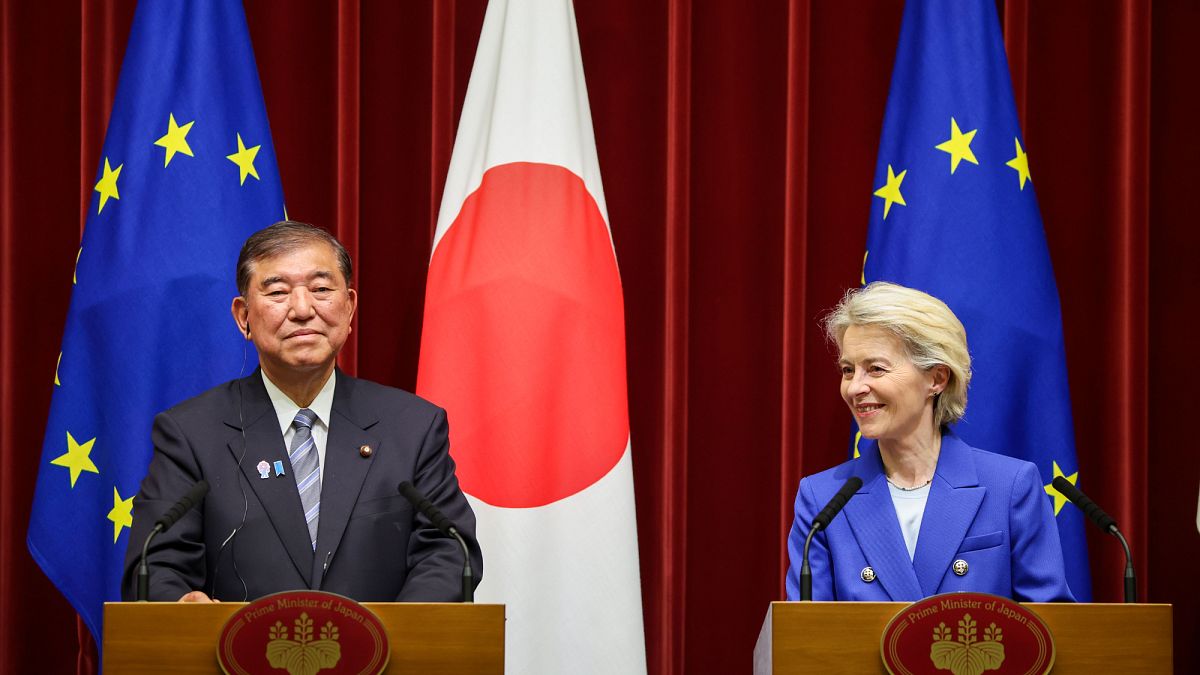

In an era of dynamic global interactions, nations are increasingly seeking to solidify their economic and military footprints through strategic alliances and agreements. Recent developments underscore this trend, highlighting collaborations that aim to reinforce economic, technological, and security capabilities across the world.
The European Union and Japan are deepening their trade alliance amid a complex global economic landscape influenced by major players such as the United States and China. This strengthening of ties seeks to bolster economic resilience and mutual prosperity, enabling both entities to navigate economic challenges with greater confidence. The emphasis is on shared values and interests to foster a stable and balanced trade relationship between the two partners, contributing positively to global economic stability.
Similarly, a significant defense agreement has been signed between the United Kingdom and Turkey. This pact involves Turkey’s acquisition of Eurofighter jets, a move that signifies Ankara’s commitment to upgrading its air defense capabilities. The overarching strategy for Turkey is to modernize its military assets while simultaneously pursuing a reintegration into the US-led F-35 fighter jet program, from which it was previously excluded. Such moves highlight Turkey’s intention to diversify and enhance its defense alliances, reflecting broader geopolitical intentions.
On another front, the Chinese delegation is setting a positive tone ahead of the EU-China summit, emphasizing the potential for enhanced business cooperation. While there are some tempered expectations surrounding the summit, the focus remains on increasing Chinese investments in Europe and forging collaborations in research and intellectual property. By nurturing these relationships, both regions are looking towards a future of economic synergy and innovative partnerships.
Meanwhile, the United Kingdom and India have reached a landmark free trade agreement during Indian Prime Minister Narendra Modi’s state visit to London. This agreement marks a significant post-Brexit milestone for the UK and a noteworthy entry for India into global free trade spheres outside of Asia. The agreement promises enhancements for Britain’s car and whiskey industries while providing India with favorable visa concessions. Despite leaving some sensitive issues open, the deal underscores a mutual commitment to building a long-term economic partnership, reflecting both countries’ growing influence on the world stage.
These various international collaborations reflect a broader trend towards economic interdependence and diplomatic cooperation. As countries navigate the challenges and opportunities of the 21st century, strategic alliances such as these provide a platform for collective growth, technological advancement, and peace. They pave the way for a future where shared interests can drive global progress, underscoring the importance of dialogue and partnership in an interconnected world.
Source: {link}
